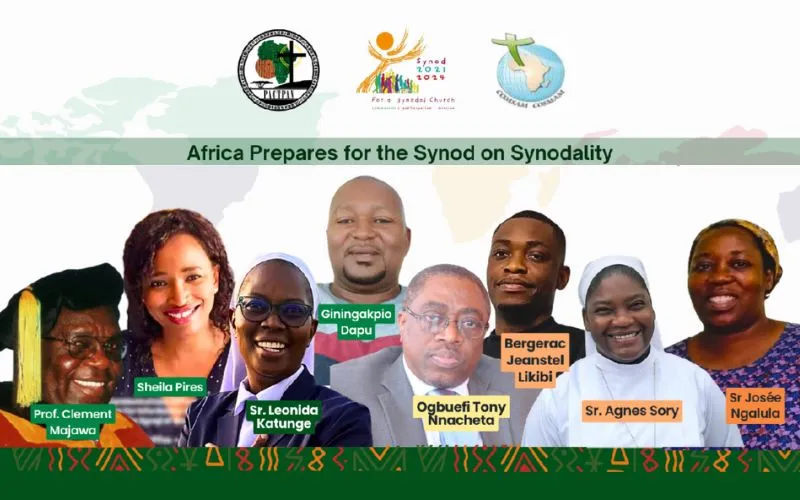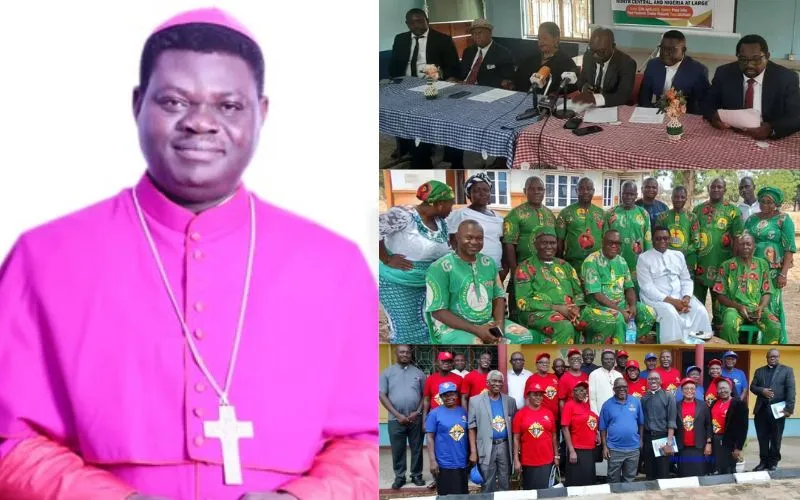“What we experience in refugee camps… Many women, especially from South Sudan, discovered the Christian faith and desire in a deep way to receive the baptism and the other Sacraments. But being the second or third wife, they are not allowed,” Elisabetta shared, and sought to know what pastoral approach could be applied in such scenarios.
“It is really a suffering for them, and in several cases, they are very active, but…without baptism they feel excluded from the real life of the Church,” she said.
Theologians at the palaver presented research on polygamy in the Catholic Church in Africa, and explored the canonical implications of what they said Africans were proposing.
Sr. Leonida Katunge, a lecturer of liturgy who serves as coordinating servant II of PACTPAN explored the question, “Is the current pastoral approach to polygamy in Africa an adequate response to the presence of many polygamous families who wish to either join the Church as polygamous couples or to remain in the Church while taking a second wife?”
In her presentation, the Kenyan member of the Sisters of St. Joseph of the Catholic Archdiocese of Mombasa in Kenya (SSJ Mombasa) urged the theological commission to accompany those in polygamous marriages, and to help them to gradually accept what the Catholic Church teaches about marriage.
(Story continues below)
She cautioned against hurried transitions from polygamous to monogamous arrangements, saying that lack of preparation of those involved, especially the women, could have legal implications.
“We need to listen more to the people in polygamous marriages to understand what drives them to remain in such marriages,” Sr. Katunge said, and added, “The Church should enter into dialogue with these people and engage them in a process of transition from polygamous to monogamous marriages. We must help them understand the reason behind the call of the Church to live in monogamous marriages.”
Underlining the need to apply “gradual conversion” for those in what the Church considers as irregular marriages, the Advocate of the High Court of Kenya said, “Hurrying the process may amount to legal problems. There will be aggrieved parties including the woman that the man decides to leave.”
She Katunge acknowledged the reality of polygamy in the Church in Africa, saying, “Each of my grandfathers had two wives. I therefore have a taste of polygamy.”
She said that with the introduction of Christianity in Africa and in the whole world, each people, had to abandon certain practices in relation to their ways of life in order to become Christians. In Africa, the main culture that the people had to abandon was polygamy, Sr. Katunge said.
She gave results of the research that she and her team at PACTPAN had conducted since February 2024 to understand polygamy in the Church, and how best the Church can take care of Catholics living in polygamous arrangements.
The lecturer at the Catholic University of Eastern Africa (CUEA) presented the “questions and cries” of those living in polygamous marriages.
Most of those engaged in the study sought to know why the Catholic Church denied them the sacraments but went ahead to assign them leadership roles in Small Christian Communities (SCCs) in parishes, and sometimes in Dioceses.
According to the report that Sr. Katunge presented at the palaver, other polygamous men in the Catholic Church asked, “Are we not better we who live openly with more than one wife than those keeping mistresses secretly?”
They also asked, “How will the Church tell me to choose one over the other? Will that not amount to divorce? What will happen to the children born in our polygamous marriages in case we choose one woman over the other?”
The PACTPAN official said that what those in polygamous marriages are asking for is to be allowed to formalize their marriages in Church, and to be allowed to receive the sacraments.
The Catechism of the Catholic Church (CCC 1645) describes polygamy as being “contrary to conjugal love which is undivided and exclusive.” According to CCC 1646, polygamy contravenes the principle of fidelity of conjugal love, for “by its very nature conjugal love requires the inviolable fidelity of the spouses. This is the consequence of the gift of themselves which they make to each other. Love seeks to be definitive; it cannot be an arrangement ‘until further notice.’”
In her presentation during the July 24 palaver, Sr. Katunge reminded participants that the doctrine and tradition of the Catholic Church only recognizes a monogamous marriage.
“Marriage is a sacrament in the Catholic Church strictly between one man and one woman, presenting a clear doctrinal stance against polygamy,” she said.
The holder of a Bachelor of Philosophy and Theology from CUEA, Licentiate in Sacred Liturgy and PhD from the Pontifical Atheneum of St. Anselm in Rome noted that the Church is taking care of the pastoral needs of the people in polygamous marriages in various ways, including giving them leadership roles.
She further noted that the Church is also engaged in catechesis and training when it comes to marriage.
Agnes Aineah is a Kenyan journalist with a background in digital and newspaper reporting. She holds a Master of Arts in Digital Journalism from the Aga Khan University, Graduate School of Media and Communications and a Bachelor's Degree in Linguistics, Media and Communications from Kenya's Moi University. Agnes currently serves as a journalist for ACI Africa.








